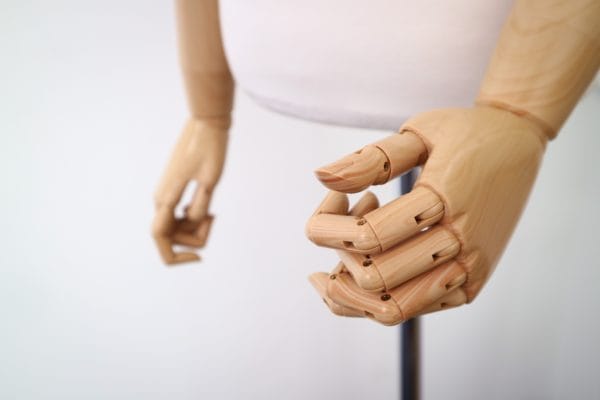Prior to COVID-19, one in five or 20% of Australians over 45 were living with the complex and debilitating condition of chronic pain.
Chronic pain is pain that lasts beyond normal healing time after injury or illness, which is generally three to six months, and is felt for most days of the week.
What is chronic pain?
Chronic pain, as opposed to acute pain, is an abnormal pain that does not improve with time and can occur long after the body has healed itself. It can alter the way nerves and the brain process pain, continuing to tell the body it that hurts.
Mild to severe pain signals can remain on the body for weeks, months and even years.
“Often people experience chronic pain long after the initial trauma, injury, or illness has occurred and the body has healed,” says The Banyans Health and Wellness Chief Medical Officer Dr Christian Rowan, an Addiction Medicine Specialist with a strong associated interest in Pain Management.
“Mild to severe pain signals from the trauma injury or illness can remain in the nervous system for weeks, months and even years, making it a difficult condition to live with.”
People living with chronic pain syndrome have higher rates of poor sleep, fatigue and low moods, which can lead to or exacerbate depression and anxiety.

More than two-thirds of the Australians (68%) living with chronic pain are of working age, meaning the cost to the community and the economy is significant. The condition is estimated to have cost the Australian economy $139 billion in 2018 alone, predominately through reduced quality of life and productivity losses.
In 2020, worldwide productivity loses associated with chronic pain were estimated to be valued at $49.74 billion.
Overall, women are more likely to be impacted by chronic pain syndrome and it is projected that by 2050, around 2.95 million Australians will be living with the condition.
Thankfully, increasing numbers of people are seeking help from their GPS in relation to their chronic pain, with the number of chronic pain consultations rising 67% between 2006-2016.
What causes chronic pain?
Chronic pain is also referred to as persistent pain and can be caused by inflamed or dysfunctional nerves after suffering damage or long-term misuse. It can be the nerve damage that makes the pain more intense and long lasting.
Changes to the nervous systems, the residual effects of acute pain episodes, and even genetics can cause chronic pain. Causes of chronic pain can also be illnesses such as migraine, osteoporosis and arthritis, musculoskeletal problems, injury, surgery and cancer, and sometimes there is no apparent cause.

Chronic pain and mental health
According to Australian pain advocacy body PainAustralia, rates of mental health and suicide are higher among people living with pain and they experience depression, anxiety, fear, sleep disturbance, and fatigue.
Major depression is the most common mental health condition associated with chronic pain, with among 30-40% of people with a diagnosed mental health condition also presenting for treatment for chronic pain.
A 2011 study of the long-term consequences of chronic pain noted 50 to 89% of people dealing with chronic pain also experience sleep issues, which can significantly exacerbate poor mental health.
“Living and dealing with pain for long periods of time significantly and negatively impacts daily life and these physical impacts often have a considerable impact on people’s mental health quality,” Dr Rowan says.
The best treatment plans for chronic pain are multimodal treatment strategies that include medication, lifestyle changes and therapies.
Chronic pain can cause structural changes to the brain that add to the risk of cognitive issues as well as anxiety and depression , and reports on brain physiology have shown the central nervous system can change based on a person’s experiences, including use of medications.
Chronic pain can become a complex cycle with pain increasing levels of anxiety and depression and increasing anxiety and depression exacerbating the pain, making treatment more complicated.
Related: Anxiety and Self Compassion – when it’s time to ask for help
Chronic pain treatments
It is important to seek help for pain quickly because when left untreated, chronic pain can become more complex to treat than the pain experienced as a result of the original injury or disease.
The mind plays an important role in treatment of chronic pain, as pain is subjective and defined by the person experiencing it.
Treatments for chronic pain can include medication, acupuncture, electrical stimulation, cognitive behavioural therapy, and surgery.
Multimodal treatment strategies in an integrated program are usually the most successful in overcoming chronic pain.
Chronic pain management
You can also begin to manage chronic pain by making small changes that will manage your stress, help you sleep better, and gain control over your health.

Everyday changes, made in small increments, can help.
- Exercise – even though it hurts, and seems difficult to try, exercise will encourage endorphins, and movement helps reduce pain, and encourages conditioning. Even a small amount of exercise will help and give you a sense of achievement.
- Healthy eating – although improving your diet is a long-term strategy, eating something healthy and nourishing today can help improve your mood and energy levels.
- Try to laugh – Laughter has been proven to increase endorphins, helping you to de-stress and relax and providing some distraction from the pain, while increasing your pain threshold. Laughter also suppresses the stress hormones cortisol and epinephrine. Laughter also has the advantage of being both free and fun.
- Listen to more music – Music increases dopamine levels by up to 9%, while cortisol levels decrease. The increase in dopaminergic neurotransmission improves mood, while a decrease in cortisol reduces feelings of stress and anxiety, making coping with pain easier.
Related: Pain, pain, go away: Coping with chronic pain
Help for chronic pain
There is hope for chronic pain.
The best treatment plans for chronic pain are multimodal treatment strategies that include medication, lifestyle changes and therapies.
Integrated, holistic approaches to chronic pain, like the programs delivered at The Banyans Health and Wellness, are most effective, with various specialists working together as a team on a way forward for those living with the condition.

A coordinated and cohesive approach to chronic pain provides strategies to not only alleviate physical pain, but to support mental and emotional health.
“Biopsychosocial and integrated, medically based therapies working together is important, which is why integrated programs like those offered at The Banyans Health and Wellness provide the best choice for private pain rehab retreats,” says Dr Rowan.
Ask for help
The Banyans Health and Wellness is a private treatment centre offering one-on-one treatment and programs for those experiencing chronic pain and other co-occurring conditions.
Our holistic approach incorporates medical, psychological, and natural therapies to ensure the highest standard of research-based treatment and support while helping you develop a plan for recovery.
Knowing that chronic pain can result in unintended dependence on pain killers or other prescription drugs, The Banyans Health and Wellness team can provide caring and safe medical supervision. If painkiller dependency has developed, and a medically supported detox is required, this will be assessed and provided.
If you or someone you know could benefit from a program at The Banyans Health and Wellness, assistance is available 24/7 to help you begin your journey towards a life with managed pain. You can call anytime on +61 1300 226 926 or submit an online enquiry to begin learning how we can help you rediscover the fullness of life.




